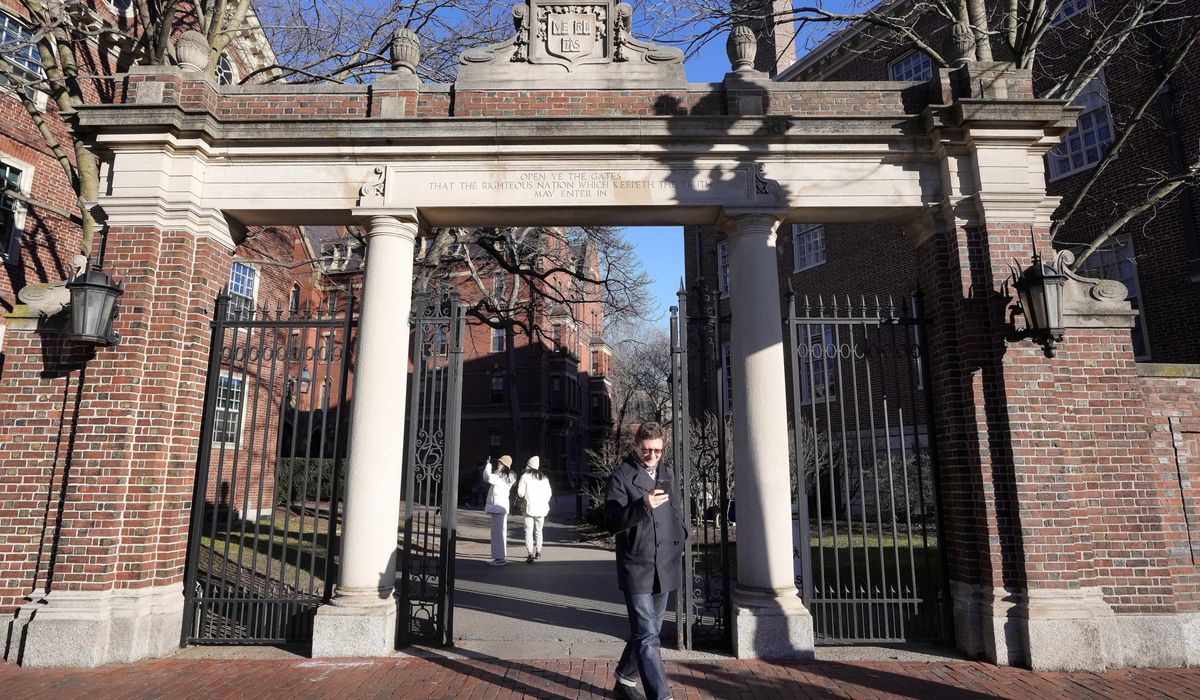


Several colleges have stopped offering optional graduation ceremonies divided by race, sexuality and income amid federal and state bans on diversity, equity and inclusion initiatives.
Schools that have ditched decades-old “affinity graduations” for the class of 2025 include Arizona’s Maricopa Community Colleges and Harvard University. The latter renamed its diversity office and announced it would no longer fund the ceremonies last month, after the Department of Education threatened to cancel grants over violations of President Trump’s ban on DEI programs.
This commencement season marks the first time colleges have ended the celebrations, which started with Black students in the 1970s and grew to include undocumented immigrants and “Pilipinx” — the gender-neutral term for Filipinos favored by liberals.
“I think school-sponsored race-based graduations will fade as the legal and financial costs mount,” said William A. Jacobson, a Cornell University law professor who has criticized affinity graduations. “Separating students by race is the very definition of segregation.”
Mr. Jacobson said the legal issue with school-sponsored affinity graduations is that, while all may attend in theory, their exclusionary advertising and practices could violate civil rights law.
Affinity graduations, which do not replace commencement, typically include speakers, robes and other graduation staples.
Higher education doubled down on the celebrations under the Biden administration, which approved them. More colleges adopted affinity graduations and expanded them last year, the first commencement season after the Supreme Court overturned race-based admissions in June 2023.
Mr. Trump has gone the other way since returning to office in January. He issued an executive order to close the DEI offices that organize affinity graduations.
“President Trump promised to terminate DEI in the federal government, protect equal opportunity, and force schools to end discriminatory admissions policies, and he delivered,” a White House spokesperson told The Washington Times. “Every man and woman should have the opportunity to go as far as their hard work, individual initiative, and competence can take them. In America, excellence, grit, and determination is our strength.”
Some Republican-led states have moved to codify the president’s order. Last month, Utah and Kentucky lawmakers passed DEI spending bans that forced public colleges to cancel their affinity events.
The advocacy group Project Rainbow Utah responded by helping LGBTQ students at Salt Lake Community College, the University of Utah and Weber State University host “lavender graduations” off campus.
In Kentucky, students at the public University of Louisville and private Bellarmine University held a Black graduation celebration with local colleges at a church. Students at public Morehead State University similarly organized an LGBTQ celebration without campus sponsorship.
“It’s a problem when a university holds a program for one racial or ethnic group and not for another,” said Gail Heriot, a University of San Diego law professor and independent member of the U.S. Commission on Civil Rights. “On the other hand, there is no law to prevent students from holding an event of their own so long as they aren’t drawing on the resources of the university.”
Other campuses have resisted the political pressure.
In the nation’s capital, Georgetown University has forged ahead with affinity graduations. American University renamed its affinity graduations web page “Community Commencement Celebrations” and removed information about them from its public-facing website.
Advocates say affinity graduations allow “marginalized identities” to express their cultures freely. They insist that the gatherings are optional and open to anyone.
“The Black ceremony just provides a space for a more intimate, inclusive, culture-affirming ceremony in addition to the larger ceremony,” said Randi Bryant, a D.C.-based DEI consultant and host of the Amazon Prime Video talk show “Truthing.”
Ms. Bryant, who is Black, predicted that “the ceremonies will never go away,” regardless of school sponsorship.
“Black people have always created our own spaces to exhale and feel safe and unburdened from living in a racist society, and we will continue,” she added.
Some conservatives agreed, noting that Mr. Trump cannot entirely stop them.
“Colleges and universities may not be able to prohibit them, but they could and should discourage them,” said Peter Wood, president of the right-leaning National Association of Scholars and a former associate provost at private Boston University. “Because such segregated celebrations emphasize racial division, they play a divisive role in American higher education.”
• Sean Salai can be reached at ssalai@washingtontimes.com.
